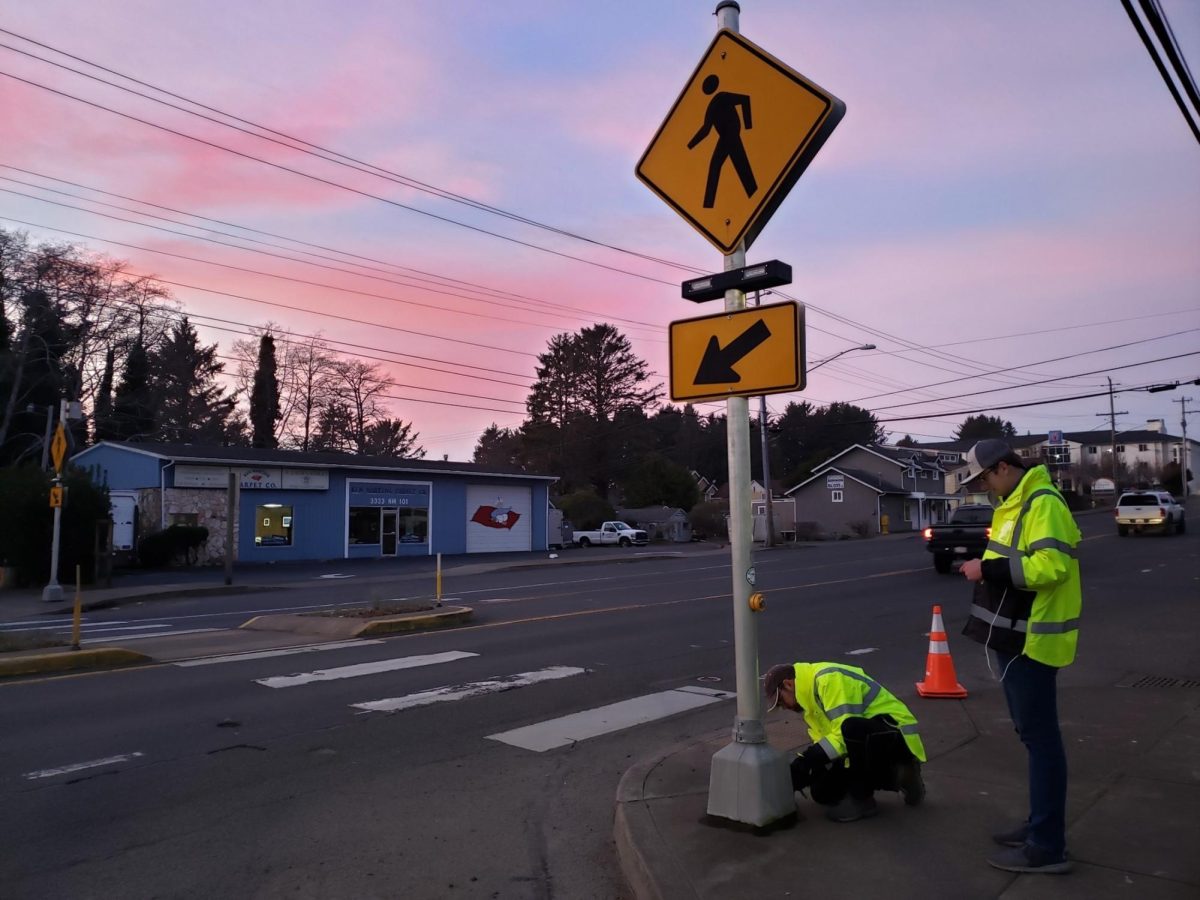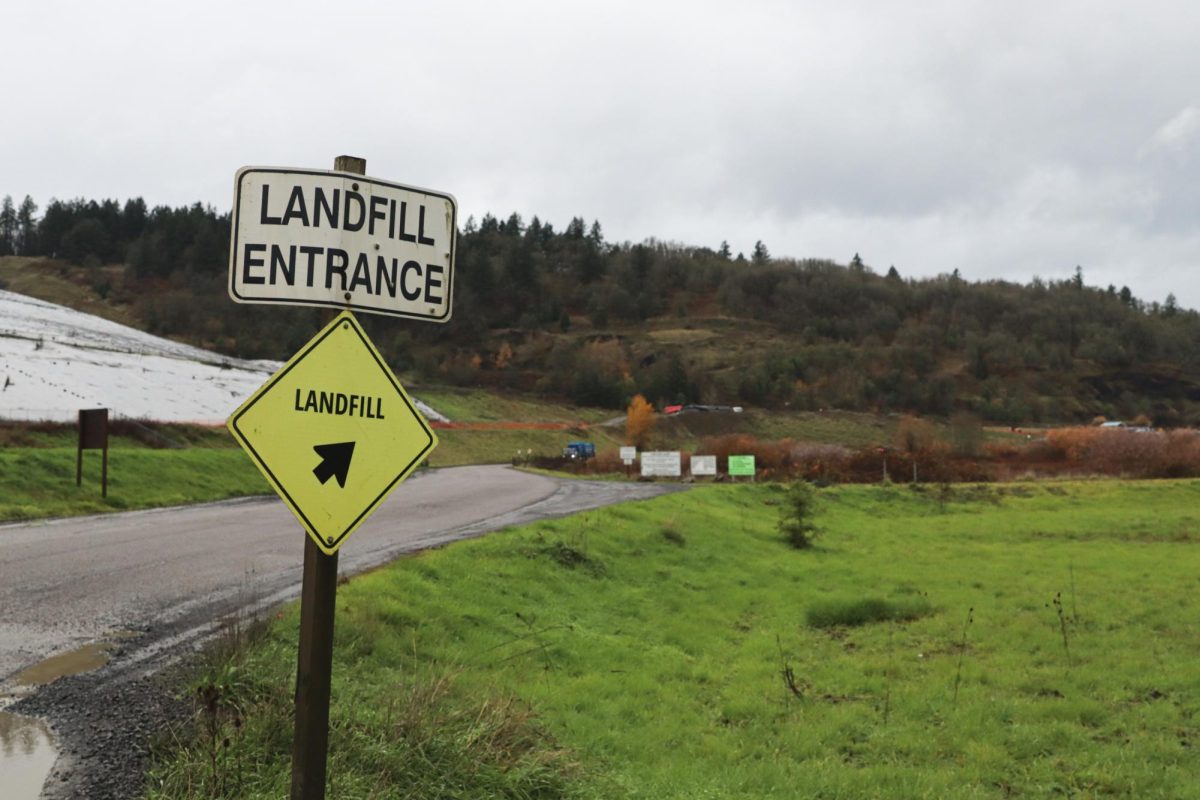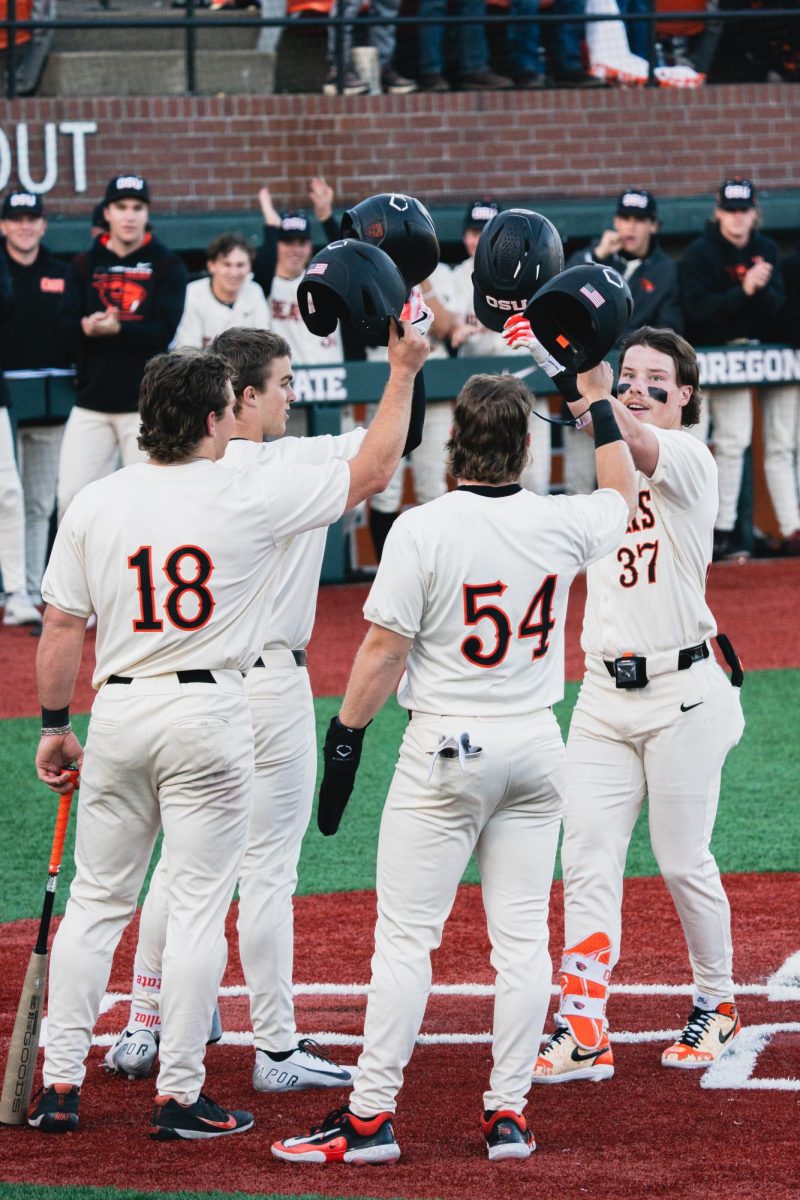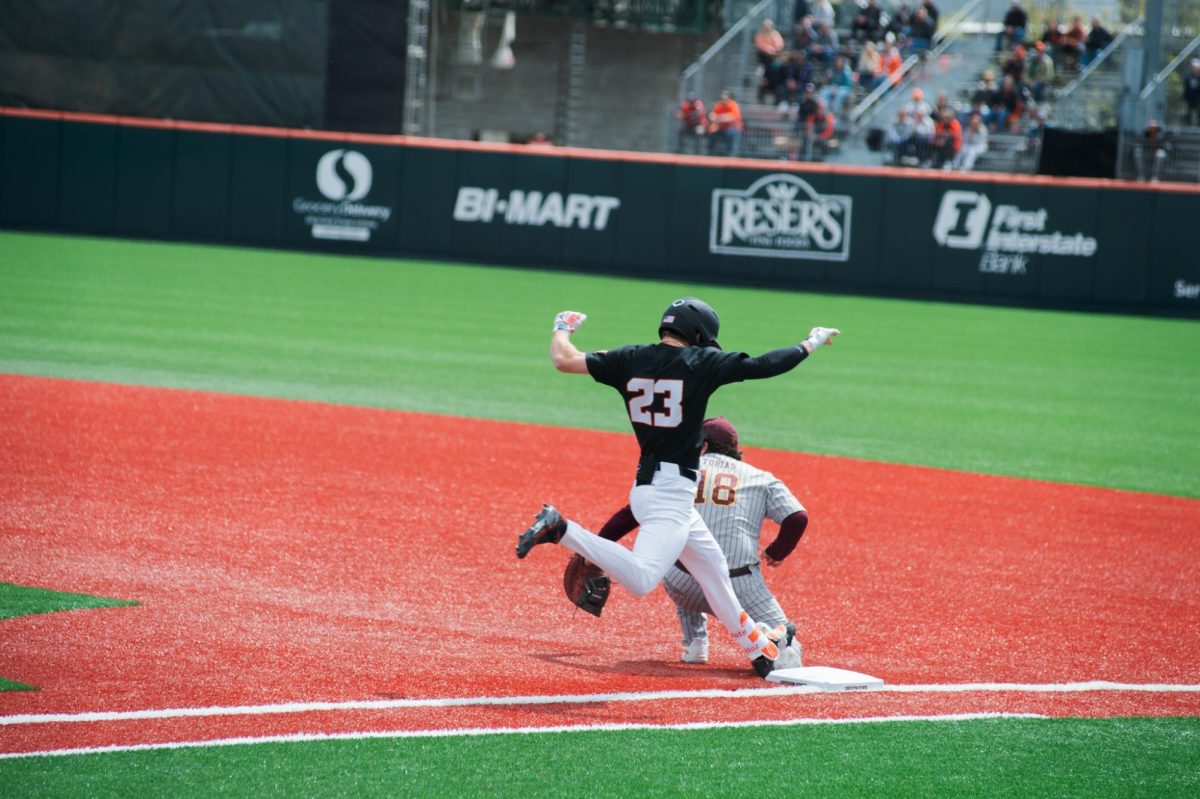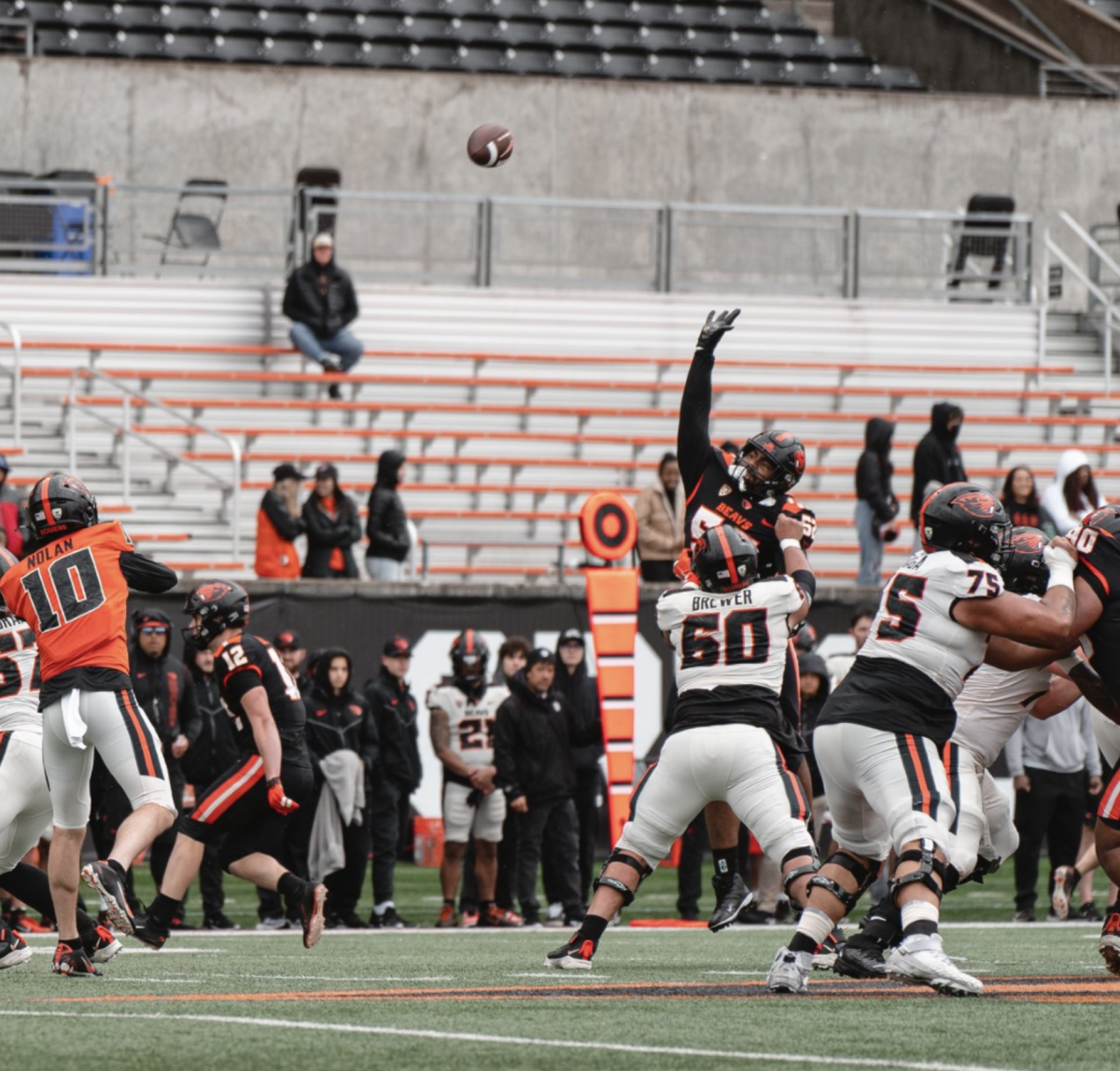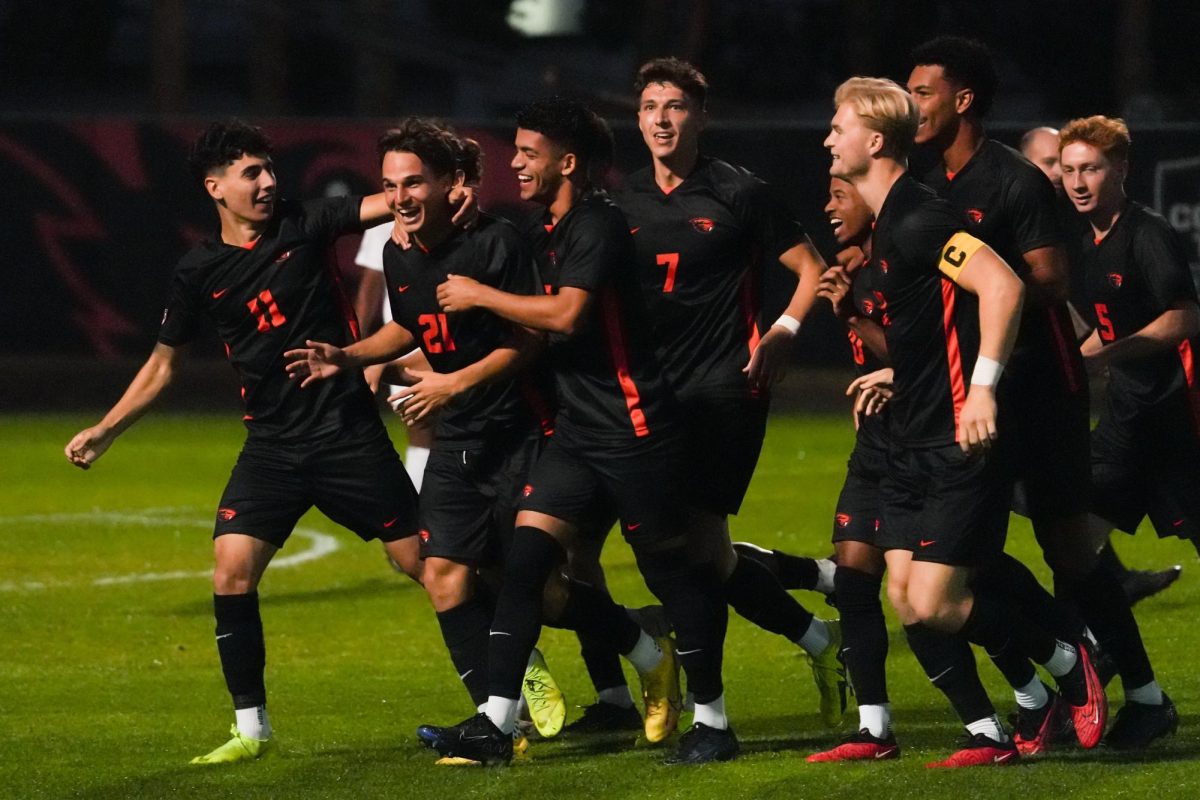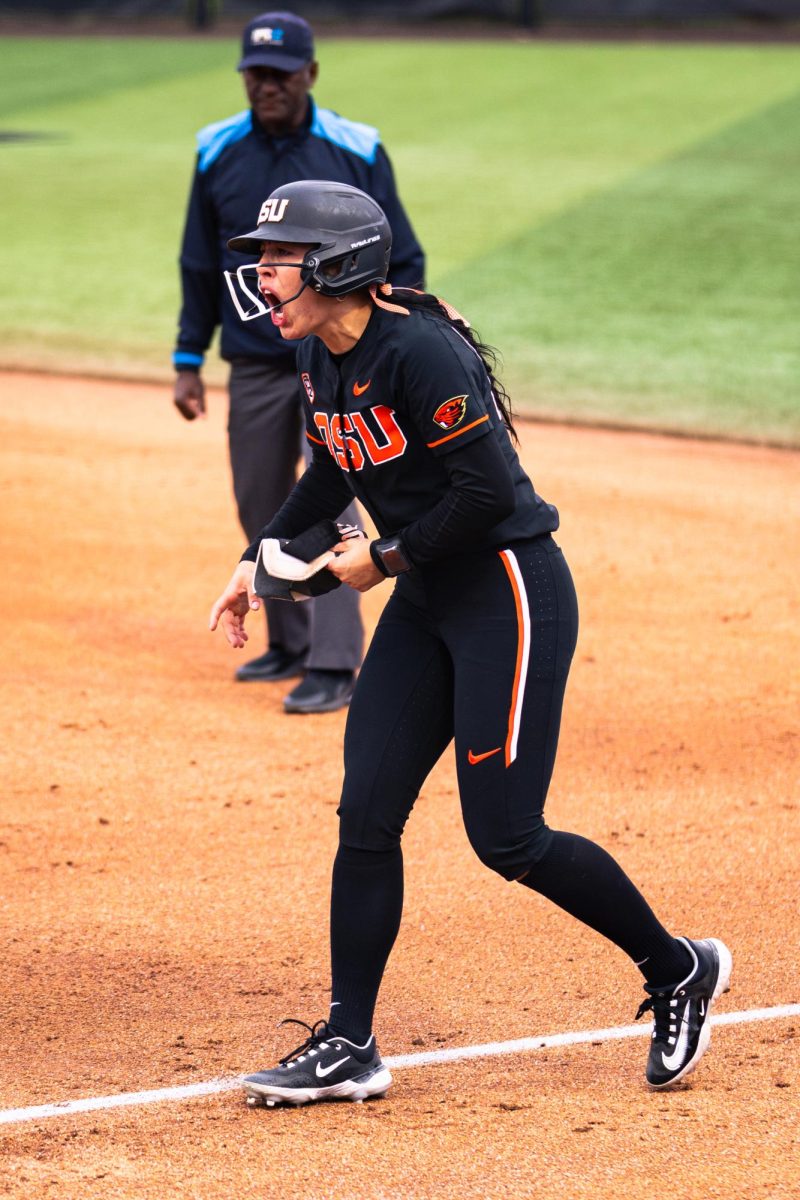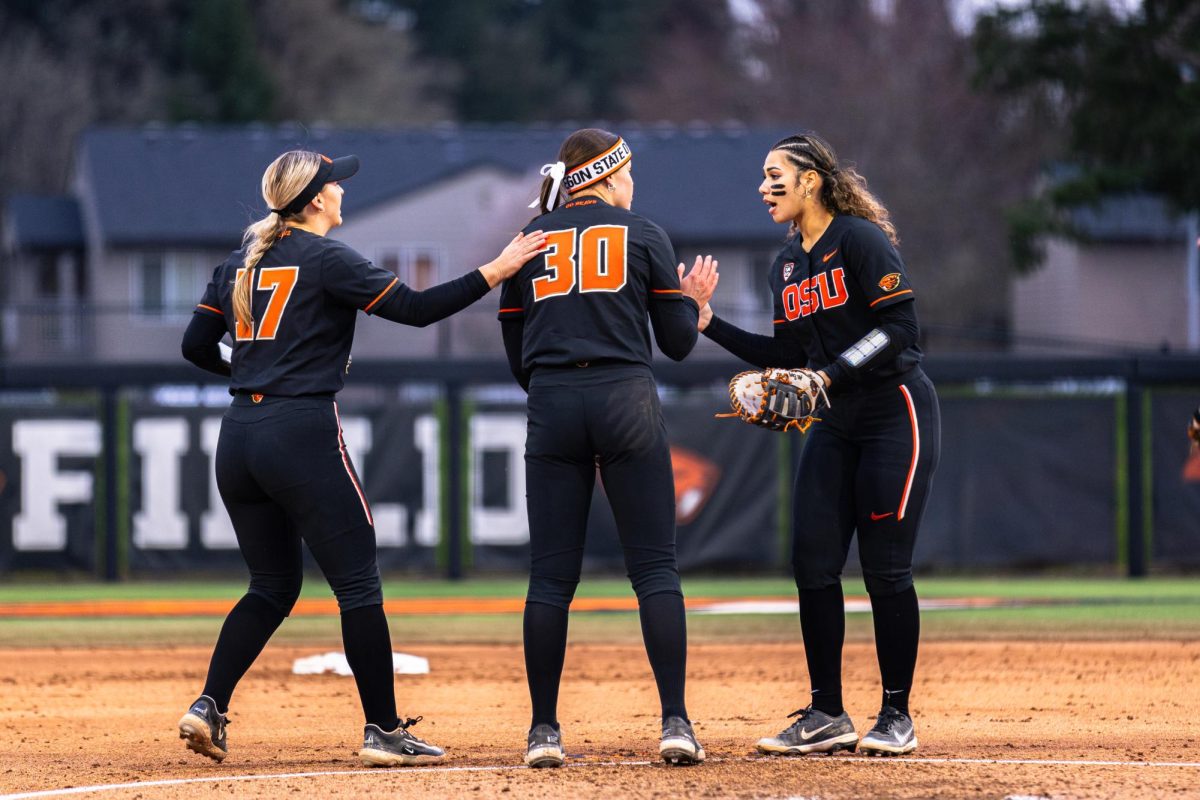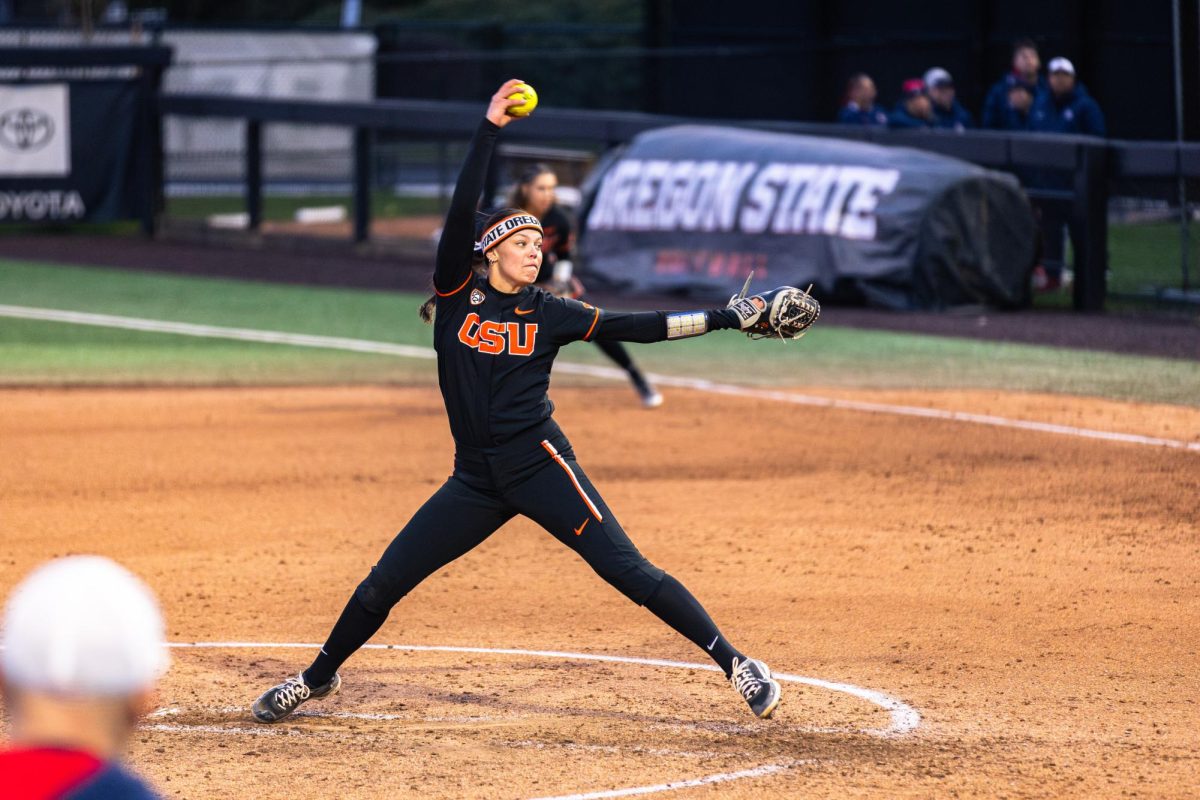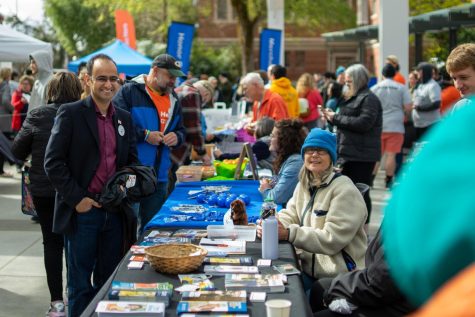Community works to maintain party safety
October 29, 2017
OSU experts advise students to act responsibly, be aware of surroundings
Oregon State University, in concurrence with various safety and legal organizations, aims to maintain a safe environment for students and the community alike during times of increased partying and alcohol consumption.
Jonathan Stoll, director of Corvallis Community Relations, understands that Halloween is a time for celebration, and underage drinking will come at much higher rates during this time. With this in mind, Stoll encourages students to remember that the OSU Student Conduct Code applies to everyone enrolled with the university, even students who live off campus.
“Regardless of location, breaking the law or violating a city ordinance may result in investigations, hearings and sanctions by the university’s office of Student Conduct & Community Standards,” Stoll said via email.
In order to reduce safety problems during Halloweekend and other busy times in the community, Stoll works with local community leaders and law enforcement to reach out to students and encourage more responsible celebrations, event hosting, alternative alcohol-free events and being an active bystander, according to Stoll.
“While the focus of this outreach is to address problems before they happen, Corvallis Police and the Oregon State Police located on OSU’s Corvallis campus will triple their presence in support of a safe Halloween,” Stoll said in an email.
In areas that are near campus, such as Monroe Avenue, OSU’s Department of Public Safety and Oregon State Police that are contracted with the campus work in conjunction with the Corvallis Police Department, according to Suzy Tannenbaum, director of public safety.
“The north side of Monroe is in Corvallis Police Department’s jurisdiction, but we do assist as needed with issues, due to the fact that Monroe is contiguous to our campus,” Tannenbaum said.
If there is an instance where CPD is in need of assistance, DPS dispatchers will dispatch OSP officers to help, according to Tannenbaum.
“We partner with agencies such as CPD, OSP and OLCC (Oregon Liquor Control Commission), as well as the OSU community to educate students and staff on the dangers of alcohol use and abuse,” Tannenbaum said. “We provide 24/7 patrols to keep the streets and campus safe. OSU ensures that there are plenty of alcohol-free, fun events that are available to all students.”
According to the Corvallis Police Department’s Lieutenant Daniel Duncan, around the time of Halloween, or any time where there is an influx of people in the area, there tends to be an overwhelming amount of noise and underage drinking. Because of this, various legal and safety concerns are likely to have a greater occurrence during these times. The most common of these concerns include unlawful amplified sound misdemeanors, loud noise violations, open container violations and Minor In Possession violations, otherwise known as MIP’s, Duncan added.
Unlawful amplified sound misdemeanors are given when noise, namely music, can be heard 50 or more feet away from a residence, or in a neighboring residence, according to Duncan. Loud noise misdemeanors are issued when specifically individuals’ voices can be heard from outside of the household. The most common occurrence is when individuals are heard yelling from a residence.
Open container misdemeanors are given to individuals who are in possession of open containers that hold alcohol while in public, generally on the street, Duncan added. MIP’s are given to individuals who are under the age of 21, and therefore are not of legal age to consume alcohol, if they consume or are in possession of alcohol.
According to Officer James Dodge of the CPD, in college towns such as Corvallis, there is always underage drinking.
“I don’t have any specific statistics for you, but as a department, we give out numerous Minor in Possession tickets every year,” Dodge said. “I know it’s well over 100 per year. Our goal would be to not have to give a single one, but that’s simply unrealistic. However, the more responsibly people drink, the less likely they are to have contact with police.”
If an individual is approached by an officer in regards to a legal or safety violation or concern, Duncan advises to comply with the officer and work with them to resolve the issue.
“We’re just looking for compliance with the law. If you’ve made a mistake, let’s correct it, let’s work together to solve the problem,” Duncan said. “Issuing a citation in those instances is basically at the discretion of the officer, but it always seems to work out easier if the person is cooperative and we can understand where they’re coming from, they can understand where we’re coming from and trying to enforce the law. Be cooperative. Let’s solve the problem, take care of it and move on from there.”
According to the Corvallis Police Department’s Sergeant Joel Goodwin, running, lying or fighting with officers results in making the situation even worse than it needs to be.
“Unfortunately, sometimes people make poor decisions when the police come and knock on the door, which can make the situation worse,” Goodwin said in an email. “If someone chooses to have a get-together, the best advice is to keep it small, keep it quiet and don’t allow people in that you don’t know. If the police do show up, realize how you respond to the officer(s) will likely impact how they exercise their enforcement discretion.”
In regards to receiving citations for unlawful amplified noise, loud noise, open containers or MIP’s, repercussions individuals may face can include receiving a ticket, going to court, paying fines and/or attending court-mandated classes, according to Goodwin.
According to Ellen Topness, a trauma specialist at Counseling & Psychological Services, individuals should additionally pay special attention to the matter that rates of sexual assault on college campuses increase during times when there is more partying.
“About 90 percent of rapes, at least on college campuses, tend to involve alcohol, so with that being said, anytime there’s more partying, anecdotally, I sometimes see more people,” Topness said.
Topness advises students to be aware of their surroundings, and to surround themselves with individuals whom they trust. However, while this is the job of potential victims, it is the job of potential offenders to not offend, Topness added. She suggested that people institute safeguards, such as a buddy system, in order to prevent rapes and assaults. That way, if anyone saw their “buddy” getting out of line or targeting someone, they could intervene.
According to Shaznin Daruwalla, a CAPS staff psychologist and interim violence support coordinator, sexual assault is part of a larger systemic issue, which involves the entire culture around rape.
“Be vigilant, and aware of your surroundings, and don’t be a bystander, intervene,” Daruwalla said. “It is the responsibility of the larger community, or the responsibility of the person hosting the party/get together. It’s a collective responsibility, not an individual responsibility.”
Students need to be immensely supportive to any friend coming to them to disclose what they experienced during a sexual assault, according to Judy Neighbours, director of the Survivor Advocacy and Resource Center.
“It is important to listen to them non-judgmentally, believe them and ask what you can do to help,” Neighbours said via email. “It is also important to not engage in blaming behaviors just because someone was involved in social events. Being an actively social college student is normal behavior, being sexually assaulted is not.”
Topness says, many victims wait years to come forward about their experiences, and sometimes never report it at all.
“This is probably because of shame, even though they’re the victim, and it’s a crime of power and control, there’s that sexual component, which creates that shame piece,” Topness said.
Any individual affected by sexual assault is able to seek help through SARC or CAPS, according to Topness. Counseling and support through SARC and CAPS are anonymous and no pressure is put on the individual to take any kind of legal action.
Various resources are available on campus in case of emergency, or even for after an emergency, according to an email sent to Corvallis OSU students from student leaders. These include the Survivor Advocacy Resource Center, the Center Against Rape and Domestic Violence, Oregon State Police, the Corvallis Police Department and the Department of Public Safety, as well as emergency services. The blue light emergency phones on campus are also available.
Additionally, under the Oregon Medical Amnesty law, an individual under the age of 21 is able to call for an emergency response when they or another person are in need or medical support without the fear of receiving an MIP ticket, according to the email.
Duncan advises all students who plan on attending parties and consuming alcohol to be prepared, have a plan and act respectfully and responsibly.
“If you’re of legal drinking age and you choose to drink, know your limits, be safe about it, know what you’re drinking, know who you’re getting your drink from if you’re at a house party,” Duncan said. “It’s always good to maybe have a partner with you, a buddy who is, “Hey, we’re going to go hang out tonight, we’re going to have a few drinks, let’s keep each other safe.’ Know how you’re going to get home, definitely don’t drive.”
Information for this story compiled by Sydney Sullivan, Noah Bucchi and Brian Nguyen.









